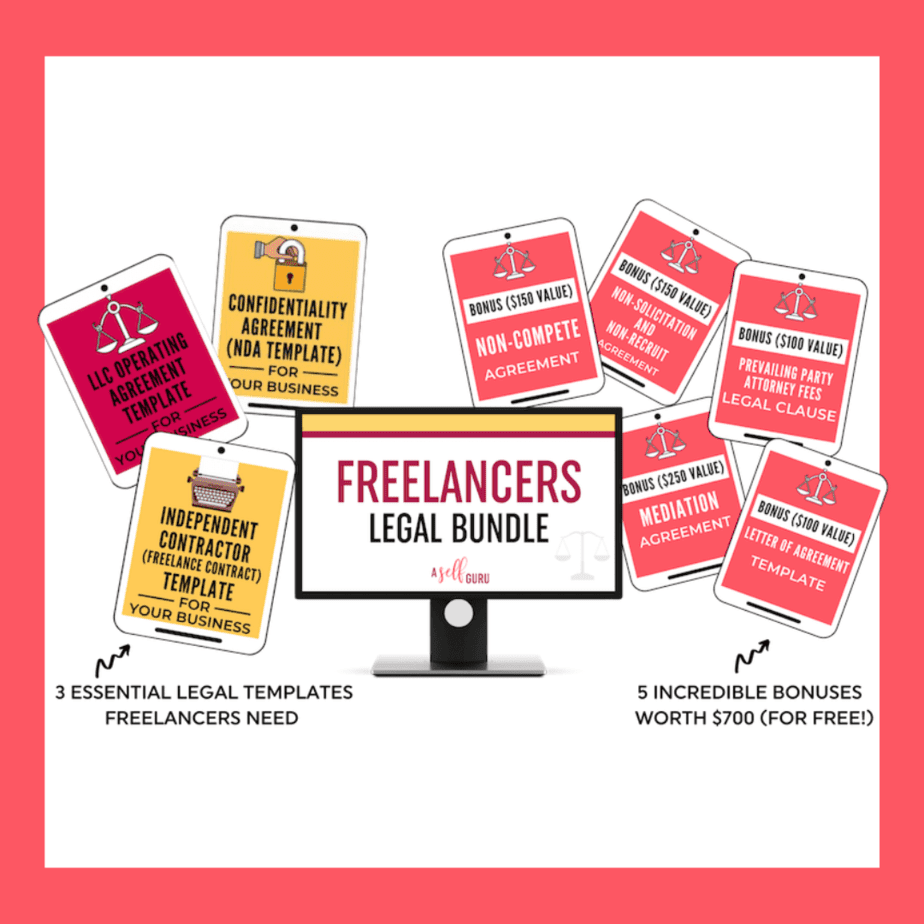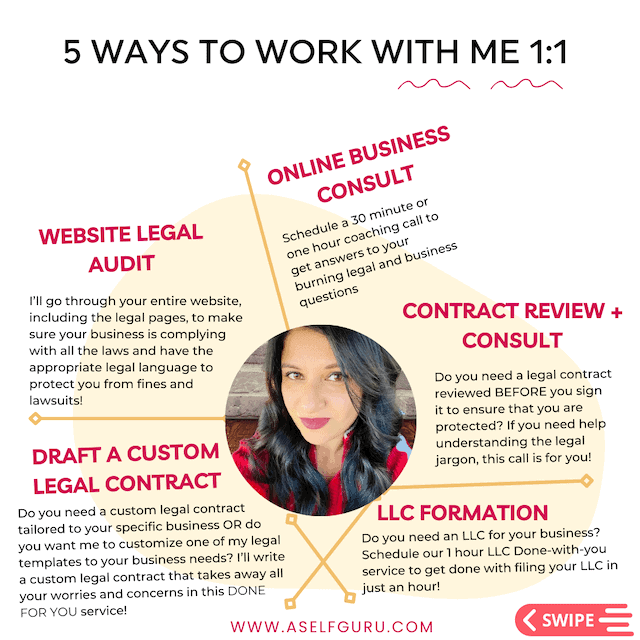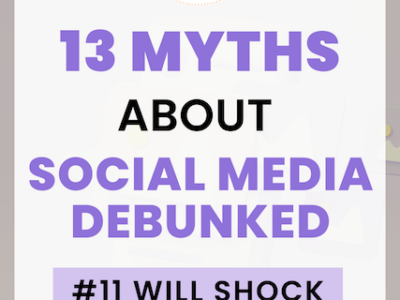Have you been curious about the differences in freelance vs. full time? Or maybe you’re trying to decide if you should make the jump into a freelancing career?
You might be wondering if you’re the right person to embark on a freelance career.
I’ll show you the advantages and disadvantages of both, how to know which one is right for you and some ideas for freelancing services you can offer to new clients.
Table of Contents
What Does it Mean to Freelance?
Freelancing refers to getting paid on a per project basis. It could be an hourly rate, but generally you’re providing a service for someone for a set rate.
Many companies offering services get their own businesses started by freelancing. They take a skill they have, that people will pay for and sell it.
Freelancers are independent contractors who are not tied to any one specific company.
Though they use freelance contracts with companies and possibly have a non-compete with them, but they are not in a full-time position and do not receive employee benefits.
As a business lawyer, I have to tell you that it’s very important to clarify in your business contract whether it’s a new employee you are hiring or a freelancer for short-term projects.
This is also important for income taxes because freelancers are responsible for paying their own taxes and do not have them deducted automatically from their earnings as a permanent employee.
Related: Check out these online paid writing jobsas a freelancer!
Freelance Contract Template
Talking about using the right business contracts, whether you are a freelancer offering your own freelance services to small businesses or are a small company looking to hire a freelancer, you both will need a freelance contract.
It’s also known as an independent contractor agreement.
Here’s a freelance contract template (written by a lawyer) that will give you complete peace of mind and save lot of time because it already knows all the important legal provisions both freelancers and clients need to establish a great working relationship.
Grab the freelance contract template here or save more money and much time with this legal bundle for Freelancers that gives you more legal templates and bonuses.
What Does it Mean to be Full Time?
Full time work is what most people know and are accustomed to.
Full-time employees work for one company for a full work week.
Generally full-time employment comes with vacation time, sick leave, health insurance and retirement accounts, known as employee benefits.
Often, but not always, full-time workers are on a career path and have career goals in a specific industry.
They may also have a set schedule or routine, with regular working hours and designated breaks.
While full-time work offers stability of a full-time job and benefits, it may not be for everyone.
Some people prefer the flexibility and variety that comes with freelancing, while others thrive in a structured 9-5 job.
Freelance vs. Full Time – The Advantages and Disadvantages of Freelancing
Let’s take a closer look at the advantages and disadvantages of both freelancing and being a full time employee.
Advantages of Freelancing
Freelancing offers many benefits. Here are the top 3 advantages of freelancing that draws many into the freelance world:
- Be your own boss – You work for yourself, which can take the stress away from having to work for someone that you don’t jive well with. You don’t have to answer to anyone but yourself (and your clients) and you get to do things your own way.
- Remote work – Most of the time freelancers are working remotely. Not only does this help you avoid traffic and allow you freedoms like being able to care for a sick child, it also opens possibilities of working with people all over the world.
- Make your own work hours – You’re the boss. You can work in your own time. You just need to let your clients know so they don’t have different expectations. This allows you to have more freedom and be more available for your family (or social life). Not everyone does their best work between 9am and 5pm. You can set your hours to work as little or as much as you want, and during the hours you’re most productive.
- Diverse types of clients – if you like variety in your work then you have a big advantage being a freelancer because no two clients are the same. You have the ability to work with a diverse range of clients, industries and projects.
Freelancing can also be a great way to increase your income and do only the type of work you love and feel most aligned with.
Disadvantages of Freelancing
Though there are advantages to freelancing, it’s not for everyone.
You can take on freelance work as a side gig or see it as an additional part-time job that you do to make a little extra income.
But in order to make freelancing a career, you’ll have to be comfortable with some of the disadvantages.
- No employee benefits – You don’t get sick days or sick pay, health insurance or retirement plans. You can absolutely build these things over time with freelancing, as you evolve your business. But there is a bit of hustle you have to commit to in the beginning.
- No state/federal employment benefits – When you’re freelancing, you don’t have access to unemployment insurance, paid family leave benefits, or social security benefits. This can make it difficult if you’re planning to have a baby and take a leave, or if something happens and you’re unable to work.
- No job security – This is perhaps the scariest part of freelancing. Your clients can leave at any time and you’re not guaranteed any income. You have to be able to go out and find clients regularly.
- Inconsistent income – You may find that as a freelancer, you now have a monthly salary instead of a weekly paycheck that comes with regular jobs. And it could vary every month. You have no control over your annual salary.
Freelance vs. Full Time – the Advantages and Disadvantages of Working Full Time
Now let’s explore some pros and cons of full-time roles.
Advantages of full time employees
- Financial stability – You can depend on a paycheck every week or every other week for showing up.
- Retirement benefits – Most companies offer full time employees some type of retirement plan, and many will match contributions, which help you to grow your retirement savings faster.
- Medical insurance – It’s likely a company giving you a full time position will offer medical insurance.
- Life insurance – it’s possible that a company will offer you a life insurance as well.
- Office space and community – Though some companies are now offering remote positions, many are still in office. This can provide a nice office space to do your work as well as a community environment with other employees.
Disadvantages of full time employees
- Company culture – A company’s culture may not align with yours. You may find it a difficult environment to work in, which is often hard to see during an interview process.
- Work schedules – The work schedule of a full time position may not always align with your family or personal life.
- Less control over the work – You may be hired with a certain title or a certain position, but often employees get sucked into doing other work they don’t love.
- Commute – Sometimes in order to find a full time position that pays the rate and benefits you want, you have to commute. Sitting in traffic or spending hours a week driving isn’t ideal for most as it can take away from time with family and friends.
What are the Differences Between Freelancing and Full time work?
A significant difference between freelancing and full-time work lies in their employment structure.
Freelancing offers flexibility, allowing individuals to choose their own projects, set their own rates and work on their own schedule.
It also provides the opportunity for diversity in work, as freelancers can take on a variety of projects for different clients.
On the other hand, full-time work offers stability and some financial security, as employees are typically guaranteed a set salary, benefits and job security.
It also allows for career growth within a specific company or industry.
Another core difference is in taxes and benefits.
Freelancers are responsible for their own taxes and do not receive any employee benefits, while full-time workers have their taxes deducted automatically and may receive various benefits from their employer.
Ultimately, the right choice between freelancing and full-time work depends on your preferences, skills, and career goals.
How to Know If You Should be a Freelancer (Is freelance better than salary?)
There’s a flip side to all the advantages and disadvantages of being a full time employee and being a freelancer.
It’s best to analyze your skill set, personality and the way you operate to determine which is the better path for you.
Here are qualities and person who thrives as a freelancer may posses:
Self-motivated
As a freelancer, you won’t have a set schedule. At least not most of the time. You’re going to need to be self-motivated to get up and do the work. You’ll often be on a deadline to get work done so you need to be motivated to stick to a schedule.
Structured
You need to be able to create your own structure in a day. In the beginning of freelancing, you will likely take on more jobs than you can handle.
You’re going to have to be able to organize the work so you can complete it on time.
You like or are able to do sales
By sales, I really just mean you need some people skills. Don’t think of it as a sleazy salesperson. But you need to be able to cold pitch and reach out to people to let them know you can provide them with what they need. And sell them on YOU.
Do you have a skill other people would pay for?
This doesn’t have to be related to your career. If you have a hobby you love, you may be able to offer it as a service.
If you’ve had a corporate career in one field for a long time, freelancing in that area can be a great start and may be the easiest place to find client work.
How much income do you need to replace?
If you make a six figure income, it will be difficult to replace it entirely right away freelancing.
But if you really want to freelance, look at your expenses and decide how much money you will need to make freelancing.
Don’t forget, you’ll be considered a business owner and will be responsible for paying your own taxes.
You have a calling inside you that you can’t ignore
A lot of times we feel a calling or a drive inside us to move in a direction that’s completely different from where we are headed.
You may keep coming back to an idea about a business or a “thing” you want to start or do.
Tap into that and see what your inner wisdom is trying to tell you. You may not know exactly what it is, but starting down a freelance path could open up many new possibilities and perhaps lead you to your true purpose (if you haven’t already found it).
Subscribe to my YouTube channel for more freelance and and entrepreneur tips!
How to know if You Should be a Full Time Employee?
At the end of the day, you have to ask yourself if you are the type of person who thrives in a structured environment with set working hours, or if you prefer being your own boss and having more control over your work life.
Here are some key factors to consider when deciding between full-time employment and freelancing:
You thrive in consistency
When you’re a full time employee, you generally get up and do the same thing every day or every week. You have a set of tasks you need to get done and you do them.
As a freelancer, you’ll have to set all of these up yourself, and there likely won’t be any consistency for awhile.
You need health insurance/retirement
Though you can get health insurance, life insurance, and retirement plans as a freelancer, in the beginning, it’s difficult and expensive.
These are usually provided to you as a full time employee.
Health insurance is usually offered at a reduced rate or free and many companies contribute and/or match what you add to your retirement accounts.
If you don’t have a partner or spouse that can get these benefits through their position, a full time job with benefits may be a better option for you.
It’s hard to get yourself motivated
If you are a planner and go getter, you can likely set a freelancing plan and keep yourself motivated to stay on track.
If you find you need a push or someone to hold you accountable to your work, a full time employment position may be best for you.
You like the stability of a salary and benefits
As a freelancer, your income could vary significantly month to month. If you prefer to have reliability and predictability in your income, you’re probably best as a full time employee.
As a freelancer, you’ll need to stash away some income that you can dip into in the slow months. The work will not always be consistent. Some online businesses, for example, shut down during the summer.
What are Some Freelance Job Ideas?
Just about anything that can be done as part of a full time job can be a freelancing job.
It’s best to stick to one area of expertise. Though you can start broad in the beginning, once you find what you really love to do, niche down and offer that service as a premium.
Think outside the box and brainstorm ideas of things you’re an expert at doing or love to do. You can also browse freelancing sites to see what other freelancer are offering.
Here are just a few freelance job ideas to get you going, but the possibilities are endless.
- Writing – blog posts, emails, ad copy, ghostwriting books, product descriptions, etc.
- Photography – food photography, brand and product photography, wedding photography, etc.
- Copywriting – websites, sales pages, email marketing, etc.
- Animal walking/caretaking – sites like Rover make this easy to sign up.
- Private/personal chef – meal prep, cooking meals, packing lunches, etc.
- Recipe development – for brands, bloggers, cookbook authors, etc.
- Administrative duties/virtual assistant – calendar planning, inbox clearing, travel arrangement, running errands, etc.
- Graphic designer
- Facebook ads manager
- Pinterest management – for bloggers, brands, service providers, etc.
- Bookkeeping
- Social media management
- Project management
- C-suite level consulting – use your career knowledge to offer high priced consulting services.
How to Get Started Freelancing
The most important thing when starting a freelancing business is to get a contract.
No matter what work you’re doing or who you’re doing it for, you need a contract to protect yourself and your client.
Though hiring an attorney is expensive, I’ve created legal templates you can purchase and use over and over with all your clients. I’ve made it simple to fill in your information.
- If you’re unsure whether freelancing is a good fit, you can start it as a side hustle (that’s what I did!) and take on one or two clients to see how it goes.
- You can visit freelancing sites like Upwork and Fiverr to look for jobs that you can do and apply for them.
- Join Facebook groups related to things your enjoy doing. In particular, ones that are geared towards finding work or freelancers. For example, there are groups for photography and photographers, food bloggers and virtual assistants (to name a few). Join them and see what people are saying. Provide helpful information and start making a name for yourself in a field.
- Join LinkedIn or update your profile and start connecting with people that could use your services. Start posting and becoming an authority in your field.
And just to be sure you don’t forget, always get a contract. I have witnessed terrible losses from deals have happened without a contract including my own dad’s business getting sued for $90,000 while hiring freelancers.
Here’s the Freelance legal bundle you’ll need OR if you just want a single contract, then here’s the Freelance contract template.
Does Freelance Work Count as Full-Time?
Yes, freelance work can be considered full-time, depending on your workload and income.
There are full-time freelancers who choose to take multiple projects or contracts, working a full 40-hour week or more.
However, others may have a lighter workload or supplement their freelance income with other part-time work.
Ultimately, it is up to you as the freelancer to determine your own definition of full-time work.
Related Posts to Freelancing that you should read:
- How to Become a Freelance Writer and Make Money from Home
- 15 Things to Include in Your Freelance Contract
- Freelance Writing Contract Template
- 17 Questions Freelancers Should Ask Clients BEFORE Working Together
Final Thoughts on Freelance vs. Full Time
In the last decade the freelance economy has grown significantly.
And from 2020 to 2023, it grew by 90% according to Forbes. Many workers are finding they can earn a higher income or a healthy work-life balance by diving into a freelance business.
To make money freelancing, you may need a mindset shift. If you believe in your abilities, you will succeed.
If you are considering freelancing, but don’t yet believe you can do it, do some inner work.
Financial stability can be seen to come from an employer or yourself.
Companies go under all the time. So you can believe in yourself more or believe in another person more. It’s great to have multiple streams of income.
RELATED POSTS TO FREELANCE VS FULL TIME
In addition to the legal tips for small business owners above, visit this legal tips page to learn about small business legal requirements and tips for starting your business!
Join our Facebook group here and you should check out the following helpful blog posts and tools for your business:
- 18 Critical Questions to Ask a Lawyer When Starting a Business (#7 is a must read)
- Are You Blogging Legally? 15 Legal tips from a Lawyer
- 16 Done For You Legal Templates Small Business Owners Need!
- Download the #1 Course Agreement Template for Online Entrepreneurs
- How to Make Your Website Compliant with the ADA and other disability laws to prevent lawsuits
- 15 Expensive Legal Mistakes Made by Startups and Small Business Owners
- 4 Laws that Professional Counselors Must Follow
Visit this freebies page to get 5 awesome free business, blogging and legal tips!
Below are some more helpful blog posts, legal tips, tools and resources that you should check out next:
- Outrank your competition and enhance your content creation
- 13 Worst Website Mistakes to Avoid
- 15 Expensive Legal Mistakes Entrepreneurs Make (and How to Avoid them)
- Beautiful Pinterest templates to increase traffic to your blog!
- What’s an LLC and when to form one?
- How to Legally Protect Your Book (with Proper Copyright Notice and Disclaimer Examples)
- Get The Simple SORT Handbook: The New Entrepreneur’s Roadmap to Setup, Operate, Record and Tax Slay a Successful Business
- AI writing tool to write blog posts 10x faster, create social media content, videos, and any kind of content to save time in business
- This SEO tool to make sure your blog posts rank on the first page of Google
MORE TOOLS TO GROW YOUR ONLINE BUSINESS
- Free SEO Masterclass to learn how to optimize your blog posts for SEO to rank on Google. You can also buy this awesome bundle of ebooks instead if you prefer ebooks over video training.
- Best accounting software to manage profit and loss and more!
- Best payroll service (super affordable too)
- A great all-in-one business platform for hosting your course, email communications, sales pages, and more!
- This Paraphrasing tool to create original work for the client
- A professional theme for your website
- Millionaire blogger’s secrets here and tons of valuable resources.
- How to start your blogging business and make money online
- How to make money from affiliate marketing
- The Best Freelance Writing Contract Template (for writers and clients)
- Guest Blogger Agreement to publish guest posts on your website legally and avoid any copyright infringement, Media release agreement to be able to use other people’s photos, videos, audio, and any other content legally, Privacy policy on your website to ensure your blog’s legal compliance, Disclaimer to limit your legal liability, Terms and Conditionsto set your blog rules and regulations! Get all of these templates at a discounted rate in one of my best-selling VIP legal bundle here.

























This is a great post! I love how this comprehensive post expertly defines freelancing, highlighting its essence as project-based work for independent contractors, outlining the distinct advantages such as flexibility, remote work opportunities, and the ability to set personalized schedules, while also stressing the importance of clear contracts and tax responsibilities in this dynamic employment model!
Thanks, Elizabeth!
Great information! Thank you for sharing all the tools and resources. They are very helpful.
You are welcome, lovely!